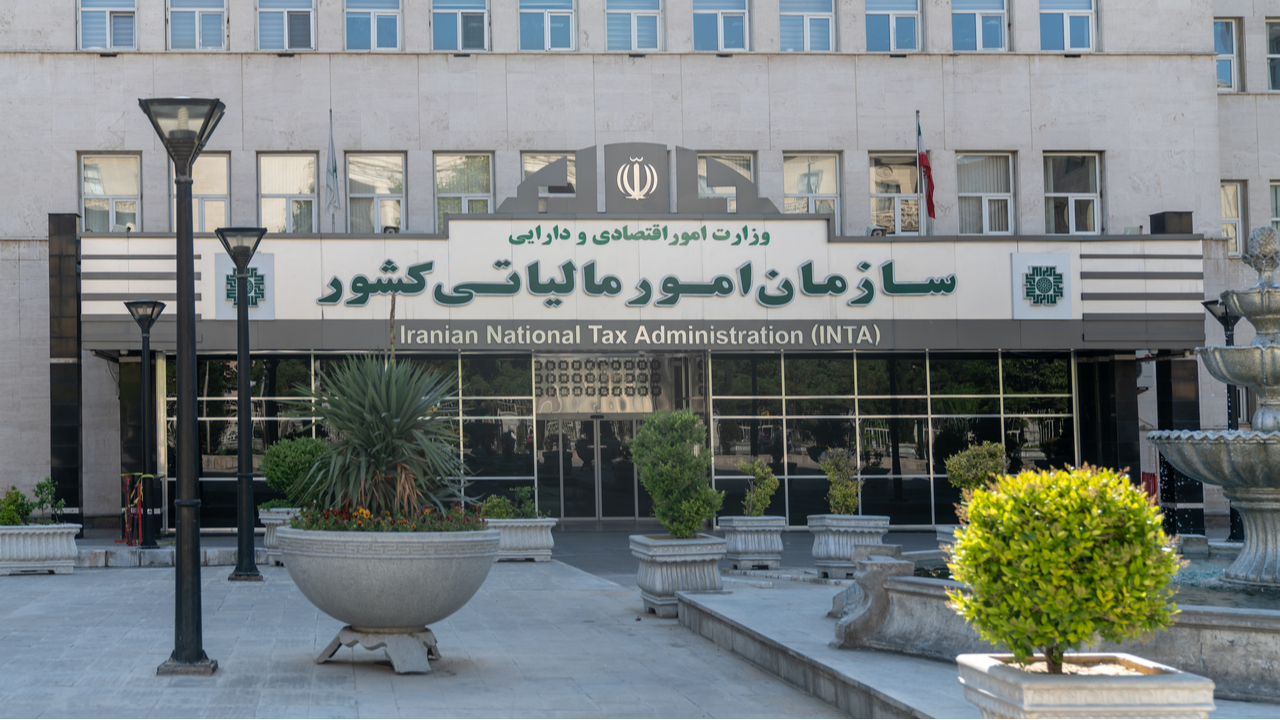 Cryptocurrency mining should be recognized as an entrepreneurial activity under Russian law and taxed accordingly, representatives of key ministries in Moscow and the parliament have indicated. Officials believe the regulatory move would benefit both the state and the crypto industry. Russian Government to Collect Millions of Dollars in Taxes After Legalizing Crypto Mining While the […]
Cryptocurrency mining should be recognized as an entrepreneurial activity under Russian law and taxed accordingly, representatives of key ministries in Moscow and the parliament have indicated. Officials believe the regulatory move would benefit both the state and the crypto industry. Russian Government to Collect Millions of Dollars in Taxes After Legalizing Crypto Mining While the […]
The infrastructure bill was first proposed by the Biden administration aimed at primarily improving the national transport network and internet coverage.
The United States House of Representatives passed the $1.2 trillion bipartisan infrastructure bill, which if signed into law by President Joe Biden, would enforce new provisions in relation to crypto-tax reporting for all citizens.
The infrastructure bill was first proposed by the Biden administration aimed at primarily improving the national transport network and internet coverage. However, the bill mandated stringent reporting requirements for the crypto community, requiring all digital asset transactions worth more than $10,000 to be reported to the IRS.
As Cointelegraph reported, the bill was first approved by the Senate on Aug. 10 with a 69-30 vote, which was met with a proposal to compromise amendment by a group of six senators — Pat Toomey, Cynthia Lummis, Rob Portman, Mark Warner, Kyrsten Sinema and Ron Wyden. According to Toomey:
“This legislation imposes a badly flawed, and in some cases unworkable, cryptocurrency tax reporting mandate that threatens future technological innovation.”
Despite the lack of clarity in the bill’s verbatim, the infrastructure bill intends to treat the crypto community’s software developers, transaction validators and node operators similar to the brokers of the traditional institutions.
The House of Representatives passed the controversial infrastructure bill to President Biden after securing a win of 228-206 votes. In addition, the crypto community showed concerns over the vague description of the word ‘broker’ that may consequently impose unrealistic tax reporting requirements for sub-communities such as the miners.
this bill is unconstitutional and inherently anti-American
— Meltem Demir◎rs (@Melt_Dem) November 4, 2021
private citizens have the right to financial privacy and financial freedom
absolutely shameful to see this https://t.co/O9FkVC2CF4
As a repercussion, the inability to disclose crypto-related earnings will be treated as a tax violation and felony.
Related: 8-word crypto amendment in Infrastructure Bill an ‘affront to the rule of law’
Legal experts recommended amendments to the infrastructure bill that considers failure to report digital asset transactions as a criminal offense.
Abraham Sutherland, a lecturer from University of Virginia School, cited concerns over the US government's decision to blanket term crypto sub-communities as brokers:
“It’s bad for all users of digital assets, but it’s especially bad for decentralized finance. The statute would not ban DeFi outright. Instead, it imposes reporting requirements that, given the way DeFi works, would make it impossible to comply.”

A proposed bill waiting for vote in Congress contains a “dangerous” amendment.
Legal experts have warned that a section of the Infrastructure Bill, which is due for a vote today, amends a part of the tax code and makes a failure by businesses and individuals to report digital asset transactions a criminal offense.
University of Virginia School of Law lecturer Abraham Sutherland said it is a separate provision to the controversial “broker” provision that attracted all the attention when the bill was in the Senate:
“It’s bad for all users of digital assets, but it’s especially bad for decentralized finance. The statute would not ban DeFi outright. Instead, it imposes reporting requirements that, given the way DeFi works, would make it impossible to comply.”
Meltem Demirors, CSO at CoinShares, raised her concerns on Twitter about what she sees as the unconstitutional and anti-American nature of the amendment.
this bill is unconstitutional and inherently anti-American
— Meltem Demir◎rs (@Melt_Dem) November 4, 2021
private citizens have the right to financial privacy and financial freedom
absolutely shameful to see this https://t.co/O9FkVC2CF4
The amendment to section 6050I is a part of the infrastructure bill, which is scheduled to come to a vote in the House of Representatives today, Nov. 5th.
Since 1984, section 6050I of the tax code has required businesses and individuals that receive either physical cash or a bank transfer in excess of $10,000 to file Form 8300 and report the sender’s personal information, such as name, address, and Social Security number to the IRS. The eight word amendment in the new bill includes “any digital asset” in the definition of “cash.”
Related: US senator submits resolution to allow crypto payments in Capitol Complex
This raises obvious privacy concerns when applied to DeFi and cryptocurrency transactions and is unworkable for many projects.
Sutherland explained on the October 26th episode of Unchained with Laura Shin that Section 6050I quickly evolved to become a crime-fighting tool in the drug war throughout the 1980’s. He said, “This really is not so much about tax, it’s about crime fighting.”
If 6050I is applied to digital assets transactions, businesses and many individuals who fail to report the digital assets sender’s information to the IRS would be considered felonious criminals. Banks and other financial institutions are exempt, however. Sutherland wrote in a piece on DeCential explaining the ramifications in detail and concluded the amendment would be costly, unworkable, and dangerous.
“The amendment to section 6050I is an affront to the rule of law and to the norms of democratic lawmaking. It was slipped quietly into a 2,700 page spending bill, allegedly as a tax measure to defray the bill’s trillion-dollar price tag even though section 6050I is in fact a costly criminal enforcement provision. The proposal deserves attention now, while there is still time to stop it.”
With just a 221-213 majority in the House of Reps and a united Republican opposition, the Democrats need near unanimity on their own side to pass the legislation
 Authorities in Slovenia have prepared new legislation tailored to determine how crypto holdings and transactions are taxed in the country. The proposal, aimed at clarifying the matter, has been submitted for public consultations this week, local media reports revealed. Slovenia to Amend Tax Rules for Cryptocurrencies The Finance Ministry in Ljubljana has opened public consultations […]
Authorities in Slovenia have prepared new legislation tailored to determine how crypto holdings and transactions are taxed in the country. The proposal, aimed at clarifying the matter, has been submitted for public consultations this week, local media reports revealed. Slovenia to Amend Tax Rules for Cryptocurrencies The Finance Ministry in Ljubljana has opened public consultations […]
IRS Commissioner says crypto gains are taxable in the cannabis industry as the IRS treats cryptocurrencies as property.
The Internal Revenue Service (IRS) continues to propose new tax reforms to regulate the crypto investments in the United States, with the latest notice sharing tax obligations for the marijuana industry.
The notice, signed by IRS Commissioner De Lon Harris, reflects the priorities of the United States federal agency to ensure cryptocurrency tax compliance among local businesses that grow, distribute and sell cannabis.
Commissioner Harris said that the use of cryptocurrencies in the cannabis industry is one of the top enforcement priorities of the IRS. The statement coincides with the recent proposal by the Senate lawmakers from July 2021 that intends to tighten taxation and reporting rules on businesses dealing in cryptocurrencies. According to Harris:
“Those who use it [cryptocurrencies] need to understand that the IRS considers it property, and there are gains that are taxable.”
In addition, the IRS Commissioner recommended cannabis businesses to work with reputable exchanges for converting cryptocurrencies into the U.S. dollar.
The IRS has not yet asked businesses to report high-worth crypto transactions explicitly. However, companies will need to file Form 8300 for every transaction that exceeds $10,000.
Related: US lawmakers propose adding digital assets to 'wash sale' rule and raising capital gains tax
The Senate’s bipartisan infrastructure deal recently that saw last-minute amendments proposed means to raise funds worth $28 billion by taxing crypto investments and transactions.
Following suit, more recently, on September 13, Democrats in the House of Representatives proposed new tax initiatives that would increase the tax rate on long-term capital gains. If approved, the law will increase crypto taxes for “certain high-income individuals” by 5%.
According to Cointelegraph’s report, the bill also recommends a surtax of 3.8% on net investment income, bringing up the tax rate to 28.8% for select investors.
Additionally, the new tax plan will impose the wash-sale rule on cryptocurrencies and other digital assets, which prevents investors from claiming capital gains deductions. Currently, U.S. lawmakers suspect crypto investors of using wash sales to manipulate the capital gains of their portfolio.

Indian entrepreneurs believe crypto tax laws are foundational to mainstream crypto acceptance by governments.
As the Income Tax Department of India reportedly considers taxing crypto traders and crypto exchanges soon, experts believe investors should rest assured.
According to ET Now’s report, the tax department, which operates under India’s Ministry of Finance, has signaled interest to tax crypto earnings through trade and exchanges. However, the sources claim that the move will not entitle cryptocurrencies to a valid asset class position.
Speaking to Cointelegraph, Indian entrepreneur Nischal Shetty, CEO of WazirX crypto exchange, said that getting clarity on crypto-related Goods and Services Tax (GST) will help in identifying the asset class of cryptocurrencies:
“It’s a no-brainer that your crypto earnings are taxable like other income and should be declared in the Income Tax Returns. As of now, it is not clear whether the GST would be applied on the amount of cryptocurrency bought or on the transaction fees paid by the user.”
Along these lines, the initial report suggests that the Indian government believes that all activities that generate incomes in cryptocurrencies must be taxed. However, a soon-to-be-released legislative proposal by the cabinet will provide further clarity on this decision.
On September 9, Reserve Bank of India Governor Shaktikanta Das echoed concerns about cryptocurrencies such as Bitcoin (BTC): “We have conveyed our serious and major concerns about cryptocurrencies to the government from the point of view of financial stability.”
Citing possibilities of a brewing legislative bill on crypto tax, Indian investor Evan Luthra of Luthra Group told Cointelegraph that taxing digital currencies “is a good thing.”
“I think investors and potential investors have nothing to be scared about. Governments that realize the true potential of cryptocurrencies and bring in policies to support the innovation will be the leaders of the future.”
Related: Former reserve bank official pushes for India to accept crypto
The Reserve Bank of India (RBI) shared a booklet on January 25, exploring the use cases of a digital version of fiat currency.
While the government sees only two viable options for crypto, adoption and complete ban, the RBI has plans to implement its own version of CBDC if “there is a need.”
 The regulatory status of cryptocurrency mining remains somewhat undetermined in Ukraine, even after the recent adoption of the law “On Virtual Assets.” However, albeit unregulated, the minting of digital coins isn’t prohibited either, according to a leading advisor on crypto matters at the Ukrainian parliament. Amendments to Ukraine’s Tax Law to Regulate Accounting for Crypto […]
The regulatory status of cryptocurrency mining remains somewhat undetermined in Ukraine, even after the recent adoption of the law “On Virtual Assets.” However, albeit unregulated, the minting of digital coins isn’t prohibited either, according to a leading advisor on crypto matters at the Ukrainian parliament. Amendments to Ukraine’s Tax Law to Regulate Accounting for Crypto […] Cryptocurrency mining should be registered as entrepreneurial activity and taxed as such, according to Anatoly Aksakov, chairman of Russia’s parliamentary Financial Market Committee. The lawmaker also thinks Russian digital currency regulations need refinement. Amendments Likely to Affect Mining, Taxation, Definition of Digital Currency Discussing upcoming changes in the legislation regarding digital currencies in Russia, head […]
Cryptocurrency mining should be registered as entrepreneurial activity and taxed as such, according to Anatoly Aksakov, chairman of Russia’s parliamentary Financial Market Committee. The lawmaker also thinks Russian digital currency regulations need refinement. Amendments Likely to Affect Mining, Taxation, Definition of Digital Currency Discussing upcoming changes in the legislation regarding digital currencies in Russia, head […]
Slovenian financial authorities have announced a proposal to tax cryptocurrency participants 10% on their asset income, specifically on purchasing and selling activities.
According to local media reports, the Financial Administration of the Republic of Slovenia, or FURS, is considering imposing a 10% taxable income bill on cryptocurrency asset activity in the near future.
Under the current legislation method, the authority analyses an individual's digital asset activity on a case-by-case basis by trawling through their buy and sell transactions. This can result in a stagnant and tedious crypto administrative process.
The introduction of this progressive initiative aims to digitally streamline the process, focusing solely on the purchase of goods and services, or the conversion of crypto assets into fiat currencies. Within these parameters, individuals will be taxed at a rate of 10% on their income.
In the STA news report, FURS shared additional information on the proposal:
“We would like to emphasize that it is not profit which would be taxed but rather the amount a Slovenian tax resident receives on their bank account on turning the virtual currency into cash or when buying a thing.”
French government pushes for one agency to regulate crypto across the EU
Slovenia has been a consistent voice in spearheading the adoption of digital assets and blockchain technology across Europe in the last few years.
An aggregated cryptocurrency index created by the financial research firm Crypto Head ranked Slovenia 7th in their capacity to fully adopt cryptocurrency assets calculated using a variety of metrics including Google searches, crypto ATM saturation and legislation.
 The Iranian National Tax Administration (INTA) has put forward a proposal to tax digital asset exchanges operating in the country. The authority calls for the legalization of their activities, fearing restrictions could negatively affect tax collection. Tax Agency Wants to Obtain User Data From Authorized Exchanges Seeing an opportunity to use exchange transactions as a […]
The Iranian National Tax Administration (INTA) has put forward a proposal to tax digital asset exchanges operating in the country. The authority calls for the legalization of their activities, fearing restrictions could negatively affect tax collection. Tax Agency Wants to Obtain User Data From Authorized Exchanges Seeing an opportunity to use exchange transactions as a […]